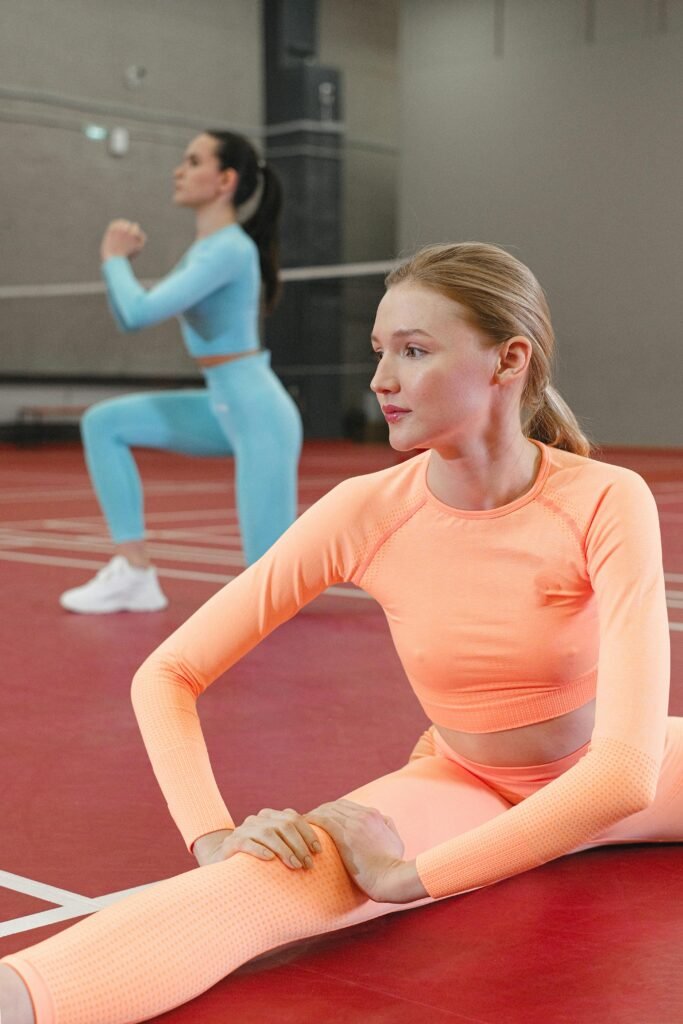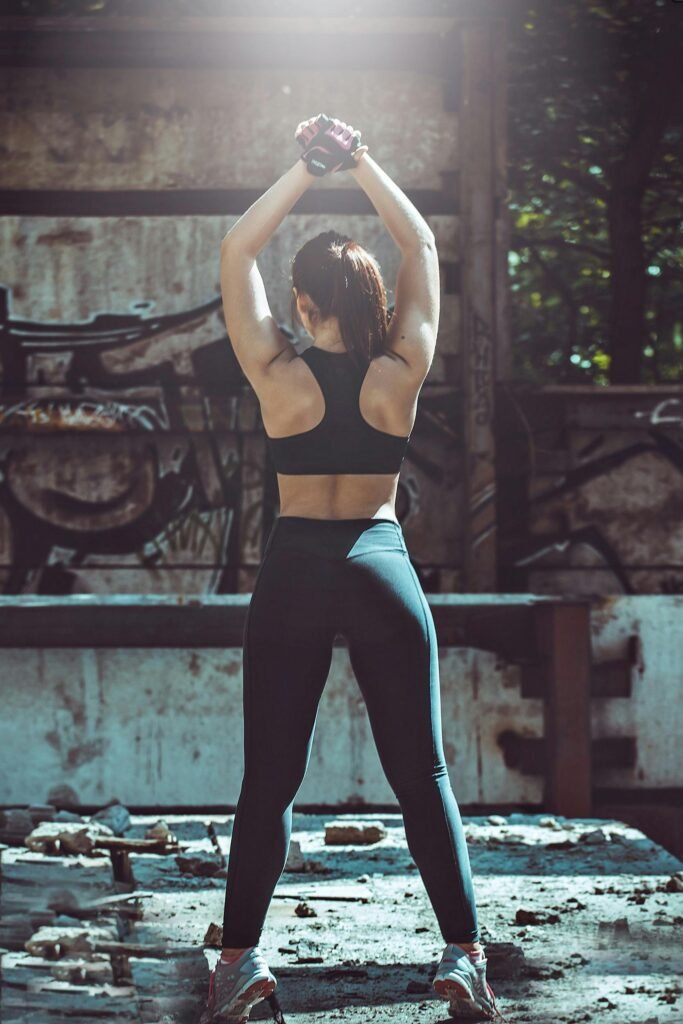When it comes to crushing your fitness goals, the right gym outfit can make a world of difference. But what many people overlook is the most critical part—the fabric.
In this guide, you’ll learn everything about the best fabrics for gym clothes, why they matter, how to choose the right one, and how it affects your performance and comfort. Whether you’re into weightlifting, yoga, cardio, or outdoor training, this article is your go-to resource.
Why Choosing the Right Fabric for Gym Clothes Matters
🧠 How Fabric Affects Performance and Comfort
The fabric you wear during your workouts can directly affect your body temperature, sweat control, movement, and even confidence. Here’s a quick story:
Sarah, a new gym-goer, wore her favorite cotton sweatshirt to her first HIIT class. Ten minutes in, she was drenched and miserable. Switching to a polyester-spandex blend changed her entire experience—it was lighter, cooler, and kept her dry.
Let’s dive deeper into the top workout fabric choices and see which one suits your needs.
Top Fabrics for Gym Clothes (Ranked by Performance)
🏆 1. Polyester – Best Overall Fabric for Gym Wear
Polyester is the most widely used synthetic fabric in activewear, and for good reason.
✅ Key Benefits of Polyester:
Moisture-wicking – keeps you dry during intense workouts
Durable and long-lasting
Lightweight and breathable
Quick-drying, making it perfect for daily gym-goers
🔍 Best Used In:
T-shirts
Workout shorts
🧘 2. Nylon – Best Fabric for Stretch and Comfort
Nylon is soft, stretchy, and often blended with other fabrics like spandex to enhance mobility.
✅ Key Benefits of Nylon:
Extremely comfortable and flexible
Moisture-wicking and fast-drying
Mildew and abrasion-resistant
🔍 Best Used In:
Yoga leggings
Sports bras
Tank tops
🏃 3. Spandex (Lycra) – Best Fabric for Flexibility and Compression
Spandex, also called Lycra or Elastane, is the go-to for flexibility.
✅ Key Benefits of Spandex:
Super-stretchy – expands up to 8x its size
Keeps clothes tight-fitting and supportive
Excellent for compression wear
🔍 Best Used In:
Compression leggings
Cycling shorts
Form-fitting tops
🌿 4. Merino Wool – Best Natural Fabric for Gym Clothes
Merino wool is soft, lightweight, and naturally adapts to body temperature changes.
✅ Key Benefits of Merino Wool:
Thermoregulating – cool in summer, warm in winter
Odor-resistant and antibacterial
Sustainable and biodegradable
🔍 Best Used In:
Outdoor workout gear
Base layers for winter sports
Trail running outfits
🌱 5. Bamboo Fabric – Best Eco-Friendly Fabric for Activewear
If you want to be kind to the planet and your skin, bamboo is a solid option.
✅ Key Benefits of Bamboo:
Naturally hypoallergenic and antibacterial
Feels luxuriously soft on the skin
Highly breathable
🔍 Best Used In:
Yoga clothes
Loungewear
Sustainable gym brands
👕 6. Cotton – Best Fabric for Low-Intensity Workouts
Cotton is soft and breathable but retains moisture, which makes it less ideal for intense workouts.
✅ Key Benefits of Cotton:
Feels natural and comfortable
Good for light activities and recovery days
Affordable and accessible
❌ Drawbacks:
Gets heavy with sweat
Causes chafing
Slow to dry
🔬 7. Blended Fabrics – Best of Both Worlds
Most modern gym wear features blended fabrics for optimal performance.
🔄 Common Blends Include:
Polyester-Spandex: Stretchy, moisture-wicking
Nylon-Cotton: Soft yet durable
Bamboo-Spandex: Eco-friendly and flexible
✅ Why Blends Work:
They balance comfort, functionality, and durability, giving you the best features from each fabric.
📋 How to Choose the Best Fabric for Gym Clothes (Step-by-Step)
✅ Step 1: Consider Your Workout Type
High-Intensity Training (HIIT, CrossFit): Go for polyester-spandex blends
Yoga or Pilates: Choose nylon, bamboo, or lyre
Running or Hiking: Use merino wool or quick-dry polyester
✅ Step 2: Prioritize Functionality
Pick 4-way stretch fabrics for full mobility
Look for compression in performance wear
Avoid 100% cotton for heavy workouts
✅ Step 3: Think Climate-Wise
In hot weather: Choose lightweight, breathable, and sweat-resistant fabrics
In cold weather: Use merino wool or insulated polyester blends
✅ Step 4: Always Read the Label
A quick glance can tell you if it’s a high-quality performance fabric
Look for terms like “moisture-wicking”, “quick-dry”, and “compression fit”
💡 Anecdote: How the Right Fabric Changed My Gym Game
Jessica, a working mom, returned to the gym after years. Wearing old cotton leggings, she struggled with discomfort and sweat stains. A friend recommended polyester-spandex leggings, and everything changed. “I felt dry, supported, and confident the whole time,” she shared. “Now I actually enjoy working out.”
🛒 Top Activewear Brands That Use the Best Gym Fabrics
If you’re ready to upgrade your wardrobe, start with these trusted fitness brands:
Nike – Dry-FIT performance fabrics
Lululemon – Nylon-Lycra blends
Under Armor – Known for compression gear
Gyms hark – Trendy poly-blend gym wear
SQUATWOLF – Premium performance-driven styles
🏁 Final Thoughts: Choose Smart, Perform Better
Choosing the best fabric for gym clothes is more than a fashion decision—it’s about comfort, sweat control, and confidence.
Don’t settle for whatever’s in your drawer. Invest in clothes made from materials that support your goals, wick away sweat, and help you move with ease.
Next time you shop, just ask yourself:
“Will this fabric help me perform better and feel more comfortable?”
Now you know the answer. ✔️



